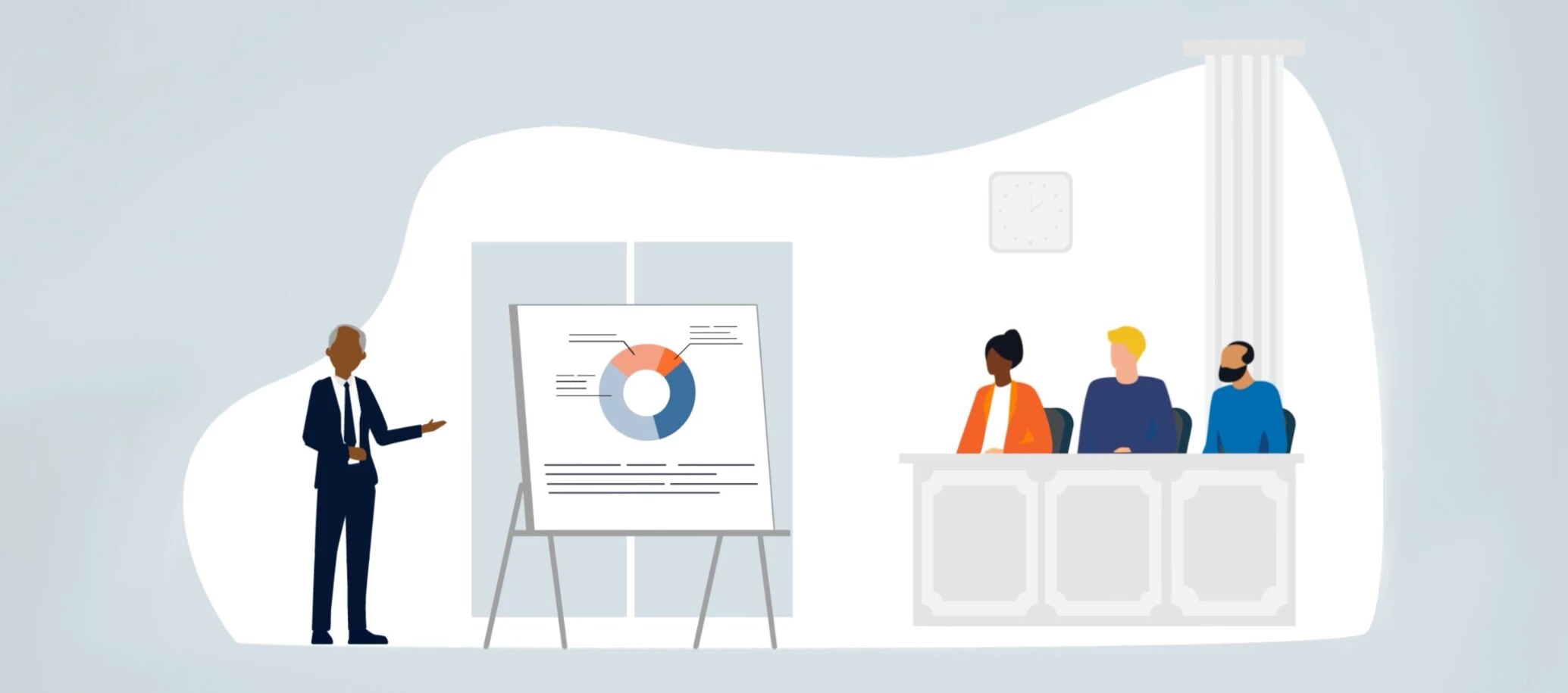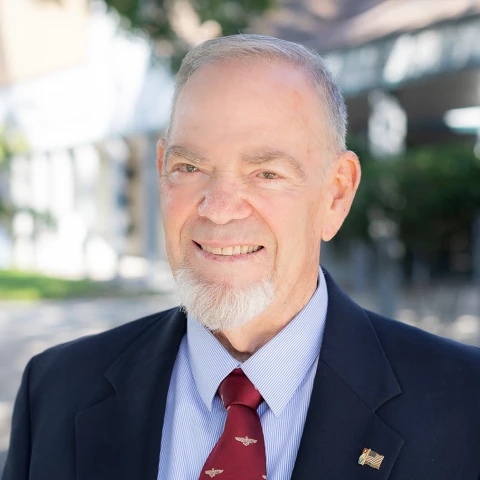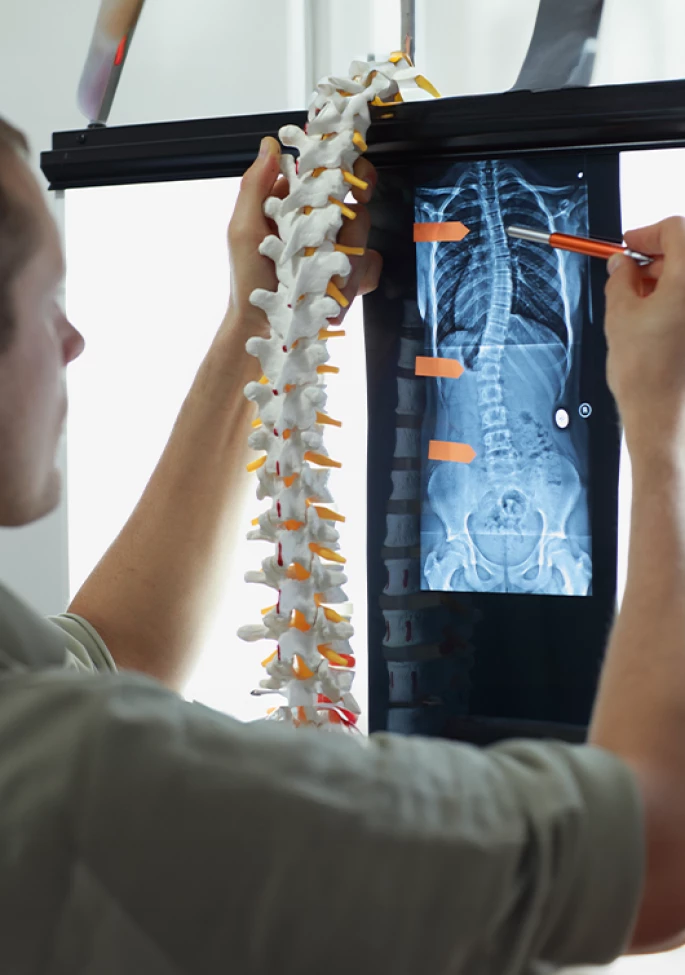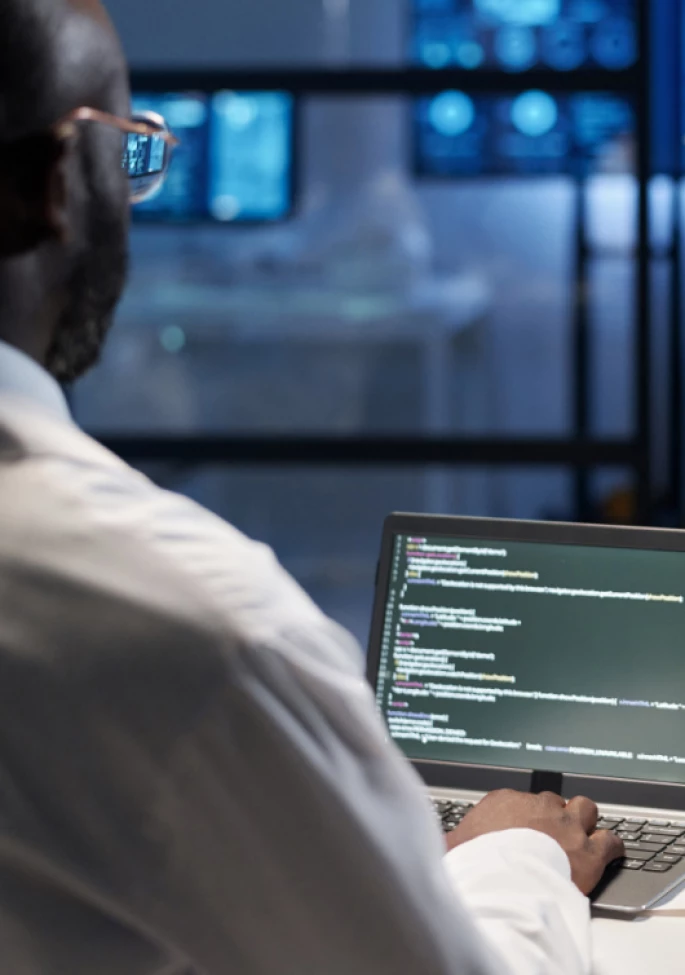An expert witness is not a lot of things. They are not a person who possesses direct knowledge of the facts of a case. They are not an advocate for any party in a lawsuit, and furthermore, they owe no duty of loyalty to any party; nor do they owe a duty to an attorney or law firm, even when that attorney or firm is paying them to testify. Experts cannot be sued or have their payment withheld simply because their testimony did not lead to the desired outcome in a case. An expert witness has no personal stake in a case at all.
Thus, it is ironic that expert witnesses—who may appear to lack passion and accountability—are often the driving forces that enable appropriate conclusions to be reached in legal disputes.
All that experts bring to a legal proceeding is deep knowledge of their subject matter—but as it turns out, that is a powerful contribution. When they convey their knowledge in a courtroom and show how it relates to the issues in a case, expert witnesses empower fact finders to make sound, rational inferences. If indeed, as set forth by Aristotle, the law at its finest is “reason free from passion,” then expert witnesses are very often the champions of our legal system.
As lawsuits that involve complex technologies climb, the number of cases requiring testimony from expert witnesses will likely rise as well. In this article, three renowned expert witnesses—Gabriele Goldaper, Paul C. Pinto, and Mansoor M. Amiji, PhD—provide lawyers, judges, jurors, and other expert witnesses with insights concerning what the best expert witnesses are not and should never be. Additionally, Dion N. Cominos, managing partner at Gordon Rees Scully Mansukhani, shares his views on the traits he hopes never to see from expert witnesses who work on his cases.
The Best Expert Witnesses Are Not Yea-Sayers
Everyone has heard the tired cliché that expert witnesses are nothing more than hired guns, but the experts who are the epitome of the profession can more aptly be referred to as straight arrows. Honesty is their guidepost, and they are willing to walk away rather than budge from well-grounded stances. Thus, they are the only experts with whom the nation’s top litigators are willing to work.
Dion Cominos of Gordon & Rees LLP, who defends clients in commercial disputes and professional liability matters, said, “I don’t want an expert witness just telling me what I want to hear. I need them to tell me candidly about the strengths and weaknesses of our position and also be able to back up their opinions at trial. Otherwise, we won’t be in the best position to plan out our case strategies—and even worse, the expert may well fall apart when under cross examination.”
Gabriele Goldaper, a luxury product authentication expert who testifies mainly in trademark infringement matters, agreed and said, “In my expert report, in deposition and at trial, I’m going to have to state the bases for my opinions, and I won’t be able to offer any bases if I am not the architect of those opinions.”
On several occasions, Goldaper, upon reading a complaint, had to inform an attorney that the claims were not aligned with standard practices within the fashion industry, and therefore, she had to pass on the case. She said attorneys typically appreciate receiving straightforward information about the shortcomings in their claims. She also mentioned that if hired early in case development, she can help attorneys determine which claims are worth their while to pursue and can point them in the direction of materials that will support those claims.
Although he has never had to back out of a case on the basis of faulty claims, Mansoor Amiji, a pharmaceutical scientist who testifies in patent litigation involving pharmaceutical formulations, occasionally has had to inform an attorney that an argument did not hold a lot of water. In those instances, Amiji counseled the attorney to go about an argument in a different way, and he informed them of the nuances they might have been overlooking. And like Goldaper, when retained early, he too helps attorneys locate additional evidence to support their claims.
The Best Expert Witnesses Are Not Advocates
When expert witnesses attempt to argue the merits of a case at trial, they lose points with jurors. Jurors are on a hunt for evidence. They need experts to be unbiased because only objective purveyors of fact can provide them with reliable evidence.
Goldaper and Amiji likened their role at trial to that of a teacher. In fact, both are professional instructors. Goldaper has been teaching at the Fashion Institute of Design & Merchandising since 1986. Amiji has been a professor of pharmaceutical sciences at Northeastern University since 1993, and he was chairman of the school’s Department of Pharmaceutical Sciences from 2006 to 2017.
Said Amiji, “My role is simply to educate judges, jurors, and the attorneys too. I’m not fighting for a client’s best interests. I’m offering opinions based on my knowledge of certain subject matters and my understandings of how those subject matters relate to the case at hand.” He went on, “Therefore, since I am an impartial conveyor of information, there is no reason to get angry during cross examination. Experts who get riled during cross appear biased, and they lose credibility.”
Goldaper stated that she does feel strongly about the client on whose behalf she is testifying—and she would not take a case otherwise—but that leaning does not lead her to take on an attorney’s role. She feels she does not need to advocate because her opinions are backed by supporting documents, and those materials do the advocating.
Paul Pinto, an expert in business transformation software project management who testifies in software trade secret disputes, strongly agreed that expert witnesses must never attempt to advocate in a case. He also concurred that being a teacher is one of the roles of an expert, but he considers himself more of a tour guide. “My role is to guide the finder of fact through the production materials and to provide them with insights they wouldn’t typically appreciate,” Pinto explained. “I educate them on the facts in a way that they can understand so they ultimately can make a fully informed decision.”
The Best Expert Witnesses Are Not Arrogant
Judges and jurors want assurance that experts indeed possess knowledge, and once they allow experts to pass through that checkpoint, they simply want the experts to provide meaningful information that will help them rightly judge the case.
Pinto said meaningful information equates to opinions that are backed by data and relate to the facts in the case. “I’ve seen experts who pontificate about their beliefs and credentials without offering supporting materials,” he stated. “They think they are the supporting materials, and judges and jurors are not impressed.” He also offered some advice to expert witnesses new to the profession, “Don’t focus on yourself and spend your time on the stand trying to look sharp as a pencil. Your focus should be on the finders of fact. Truth be told, when the motivation behind your testimony is to educate others, that’s when you actually will look sharp.”
The bottom line is that the best expert witnesses are not at all arrogant; they are striving to share their knowledge in a way decision makers understand. But that task can be difficult, particularly when decision makers never had cause nor inclination throughout their lives to even dip a toe into the expert’s field of study.
“An expert has to be able to provide jurors with at least a basic understanding of the subject matter, enough so that they can use it to make rational deductions,” said Cominos. “You can be the foremost expert in the world, but if you can’t get your position across to a jury in an understandable way, you have little to contribute to the process at trial.” On direct examination, Cominos asks questions in ways designed to help experts more clearly deliver their testimony.
Seasoned experts are familiar with various techniques and tools that enhance clarity. Goldaper said that the apparel industry has its own language; therefore, she is very careful not to use the idioms of the industry without first explaining what those words mean. She said, “Even when I’m writing the report, I relay both the industry language and the common language. I clearly explain that in the apparel industry, ‘piece goods’ means fabric. I explain words like ‘cost sheet,’ ‘bill of materials,’ and ‘tech packs.’”
One way Amiji makes his testimony understandable is by using a lot of metaphors. For instance, in a jury trial in which only one juror had an education beyond high school, Amiji had to ensure he used imagery that was part of the jurors’ everyday lives. He compared a crystal structure of a pharmaceutical product to sugar. When he went on to describe that the opposite of crystalline is the amorphous form, he compared that form to cotton candy. Pinto too said he uses metaphors, but he added that, unfortunately, metaphors often fall short as a means to explain complex enterprise software. “When I do use metaphors,” he continued, “I ensure they can be appreciated in direct alignment with the production materials. I think that method better helps the finders of fact to reach an informed conclusion.”
All three experts stated that pictures are often the most effective ways to explain how they arrived at their opinions in the case. They use graphic images, diagrams, charts, and timelines, and they believe it is important to play a part in creating those images and tailoring them to their testimony. Said Amiji, “I prefer slides, and then I like to walk around with a pointer in my hand as I explain those slides. I suppose it’s the teacher in me. But each expert, to be effective, has to determine what teaching style and demonstratives personally work best for them.”
The experts all agreed that when they testify online, it can be particularly challenging for them to ensure their messages are getting across. They feel uncertain because they don’t receive those cues from body language and facial expressions that they receive when testifying in person. “Whenever I am relaying a concept, I always provide a few different types of examples, and I approach the information from different angles,” said Pinto. “But I’m particularly conscious about restating explanations in different ways when I am testifying online because I just can’t always tell from the image I see on the computer screen whether people are understanding me.”
The Best Expert Witnesses Are Not Know-It-Alls
Some experts spent years studying particular subject matters, often graduating from prestigious universities, while others acquired specialized skills and knowledge throughout the course of their professional lives. Many have an expansive combination of both academic and professional experience. But all that effort they put forth to become powerhouses in their fields still did not equip them to be experts in every aspect of those fields. The best expert witnesses know not to tread—even a little bit—outside the true realms of their expertise.
Amiji offered some advice to expert witnesses new to the profession: “Never take a case you know is outside your expertise. If you step outside your true arena of knowledge, you won’t be credible. And the opposing side is going to rip you to pieces.”
Goldaper added to this recommendation, saying, “And when you are working on a case that you have already established is within your realm of expertise, but an attorney asks you to step outside those bounds, don’t agree to it.” For instance, she is sometimes asked to perform surveys to test Lanham Act claims or to come up with damage amounts. “I tell them, I’m not a survey expert. There are people who are. Same thing with damages,” she continued, “I can tell you why there were damages, what caused the damages, and that they resulted in losses, but I can never put a dollar sign on it.” Goldaper concluded, “I know to stay in my lane, and that’s why, in my 26 years of serving as an expert witness, I have never been the target of a Daubert challenge.”
What the Best Experts Witnesses Are
The best expert witnesses know that by not being what they shouldn’t be, they become more of what they are. The best expert witnesses are the embodiment of reason. And in order to function optimally, our legal system must absolutely be fueled by reason. Sometimes judges, lay people, and attorneys need additional tools to help them employ their own reasoning powers. Expert witnesses—solid and dispassionate at their finest—are the ones who supply those tools.
A version of this article first appeared on attorneyatlawmagazine.com.







